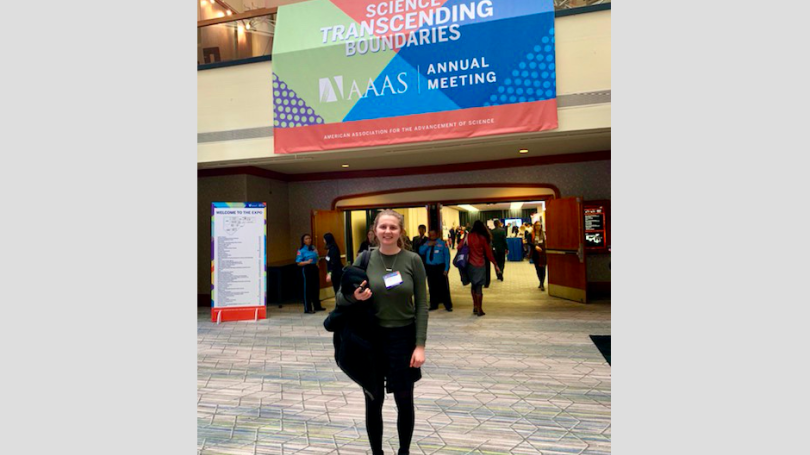
- Public Policy
- Leadership
- Funding
- News & Events
- About the Center
Back to Top Nav
Back to Top Nav
Back to Top Nav
Back to Top Nav
Sarah Pearl '20 interned at the Climate Institute in Washington, D.C. as a Research Intern during the 2019 winter term. The following is an excerpt from her internship report.
During the winter of 2019, I worked at the Climate Institute in Washington, D.C. as a Research Intern. Founded in 1986 by a Dartmouth alumnus, this organization promotes awareness, policymaking, and scientific advancement for solutions to climate change. The Climate Institute’s primary projects include researching the potential for a North American Supergrid, a high-voltage direct current transmission system powered by renewable energy; solar geoengineering, the idea of offsetting the greenhouse effect by reflecting solar radiation back into space; and climate education through computer games. These projects involve work on both the policy and science side of climate issues, and the organization’s diverse staff and board of directors reflect the need for multi-faceted and interdisciplinary solutions to environmental problems.
I spent most of my time building on the Climate Institute’s solar geoengineering work. As a double major in Physics and Environmental Studies, I hoped that my background in STEM alongside my coursework in the social science components of environmental issues would serve this project well. My main duties included thorough literature reviews to understand current scientific research on geoengineering – the projected costs, risks, and effectiveness of the technology, along with the science behind it and the potential governance mechanisms to monitor, control, and possibly deploy it. I worked with Chief Scientist Michael MacCracken using a climate model, MAGICC, to simulate geoengineering and carbon emissions scenarios.
I also attended events related to climate change in the city each week, whether congressional hearings, academic panels, or annual meetings. I wrote summaries for some of these, which were published on the Climate Institute’s website. My favorite event was a congressional hearing entitled “Time for Action: Addressing the Environmental and Economic Effects of Climate Change” held by the House Committee on Energy & Commerce. This was the first hearing I had ever attended and watching the dynamics among members of the committee and witnesses was fascinating.
Familiarizing myself with various congress members’ views on climate issues was also valuable. The topic I found most interesting was one type of geoengineering that involves injecting sulfate aerosols into the stratosphere. Through my research on this topic, I had the chance to learn about both microphysical atmospheric principles and the governance and political complexities of such a technology.
In terms of my own life goals, I realized much more clearly through this internship that I would like to go to graduate school. This internship came at an ideal time during my Dartmouth career, as it shed light on specific research topics that I would like to pursue further – such as geoengineering – within my more broadly defined interests in climate change. In doing so, it allowed me to better envision my future pursuits. I would like to give a big thank you to the Rockefeller Center. I am incredibly grateful to have had this eye-opening, challenging, and fulfilling experience.
The Rockefeller Internships Program has funding for Dartmouth undergraduate students to help defray the cost of living expenses associated with a full-time, unpaid, leave-term internships in the fields of public policy, public affairs, and social entrepreneurship.